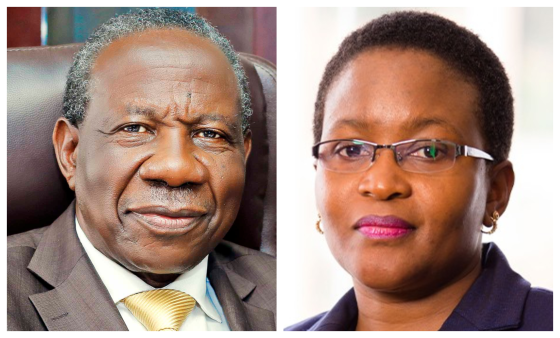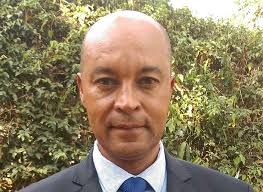As the Government of Uganda starts importing its own fuel, marking an end to an era of Government of Kenya-controlled importation and supply, Vivo Energy Uganda, the industry leader, has assured its consumers in Uganda of continued reliability of supply in “the right quantities and quality”.
Addressing journalists on a media tour aimed at giving the media, deeper insights into the company’s quality assurance processes and product journey, Elyanu Geoffrey, the company’s Supply and Distribution Manager said that although there has been a change in the suppliers of fuel from the government of Kenya to Uganda National Oil Company (UNOC), nothing else had changed in the company’s own quality assurance processes and supply chain.
Even after the change in suppliers 90% of Uganda’s fuel imports will still be handled by the Mombasa port and transported along the Kenya Pipeline Company-owned infrastructure to via Nairobi, Eldoret and Kisumu. The remaining 10% of imports are handled through Dar es Salaam
“At each point of custody transfer in our supply chain, we ensure and assure quality at each point- in Mombasa, Nairobi, Eldoret, Nakuru, Kisumu right through to Busia, into Kampala, Mbale, Entebbe wherever it goes”, Elyanu said, adding: “We will track our product through all of these points, where we have quality control as well as assurance processes. That’s what we will do throughout the entire chain right into Uganda”.
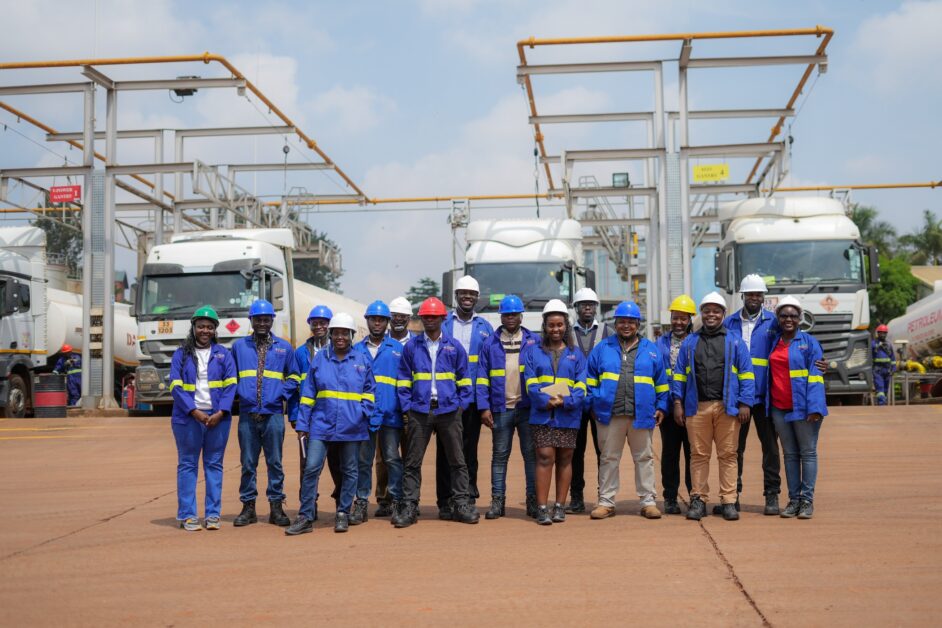
“It’s still the same process. We (Vivo) still have the same checkpoints, we still have our same qualified staff, who make sure that the product arrives here, the way it left, (the ships and pipeline), we still have our laboratories, we still have our inspection processes, and that will not change,” he emphasised, adding: “We will continue to serve you 100%, because really, what has changed is who we’re buying the fuel from. That’s the only change”.
Vivo Energy Uganda has since 2013 distributed & marketed Shell-branded fuels and lubricants in Uganda. The Ugandan entity is part of the Vivo Energy Group that operates and markets Shell and Engen products in North, West, East and Southern Africa. Its retail offering includes fuels, lubricants, card services, convenience stores, restaurants, and other non-fuel services. It also provides fuels, lubricants, liquefied petroleum gas (LPG) and chemicals to business customers across a range of sectors including marine, aviation, mining, construction, power, transport, agriculture and manufacturing.
The Shell brand has been in Uganda for over 60 years.
Addressing Uganda’s security of supply
Last year, Uganda enacted the Petroleum Supply (Amendment) Act, 2023, empowering UNOC as the sole importer of fuel to Uganda. This was prompted by Kenya’s policy shift from the Open Tender System (OTS) to a Government-Government (G2G) one, a process deemed lengthy with numerous stakeholders whose profit margins could heavily impact pump prices in Uganda.
In March 2024, Kenya’s Energy and Petroleum Regulatory Authority handed UNOC- a government of Uganda wholly-owned company, a license to import directly, products destined for Uganda. Over 90% of Uganda’s petroleum products, totalling approximately 2.5 billion litres valued at about US$2 billion annually, are imported via Kenya.
Uganda and Kenya have also since signed a Tripartite Agreement (TPA) that includes the Governments of Uganda, Kenya and UNOC. UNOC has also signed the Transport and Storage Agreement between UNOC and the Kenya Pipeline Company (KPC) to use the latter’s pipeline transport and storage facilities in Mombasa to Nakuru, Kisumu and Eldoret.
UNOC has partnered with Vitol Bahrain, which will supply all the fuel.
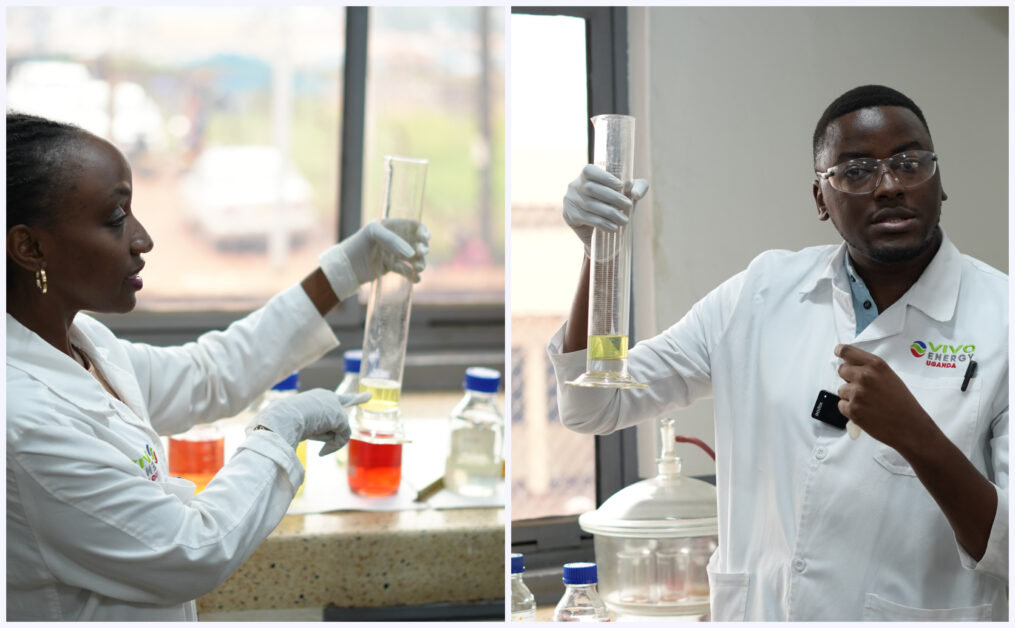
On July 3rd, 2024, NAVIG8 Martinez’s delivered 58,000 litres of diesel and on July 4th, Sinbad, another carrier delivered 80,000 metric tonnes of diesel, marking the beginning of UNOC’s sole importation of petroleum (fuel) products mandate.
Monthly, UNOC will import 180 metric tonnes (180 million litres) of fuel products. According to the Ministry of Energy, Uganda consumes about 6.5 million litres of fuel products per day- approximately 195 million litres per month.
The Minister of Energy and Mineral Development, Hon. Dr. Ruth Nankabirwa said that sole importation by UNOC would serve three purposes- “addressing Uganda’s security of supply, capacity building for UNOC and reducing the pressure on the national treasury”.
Assured quality and quantity
Elyanu clarified that over and above the base-grade diesel and petrol imports it will be getting from UNOC- which are also subjected to an in-house differentiation and additivation to create the proprietary Shell Fuel-Save Diesel and Shell Fuel-Save Unleaded, the company shall also continue directly importing its own other specialised and proprietary fuels as it has done under the past importation regime.
“For the main grades (diesel and petrol), we’ll get 100% of our product from UNOC but the company will also continue doing its own private imports for specialised products such as Heavy Fuel Oil and V-Power, which is imported directly from Shell in the Middle East for usage in Uganda and other export markets such as Rwanda, Burundi, DRC and to South Sudan,” he said.
He also said that the company will continue relying on its Group-owned lubricants blending plant in Mombasa which supplies about 90% of lubricants to Uganda but will also continue directly importing premium-grade lubricants from Shell in Europe and South Africa.
“Shell V-Power is a Shell proprietary fuel. We are the only users of it. It’s our trademark. So, we will continue to import that directly and separately from the UNOC supply chain. We will also continue to bring in our lubricants and LPG,” he said.
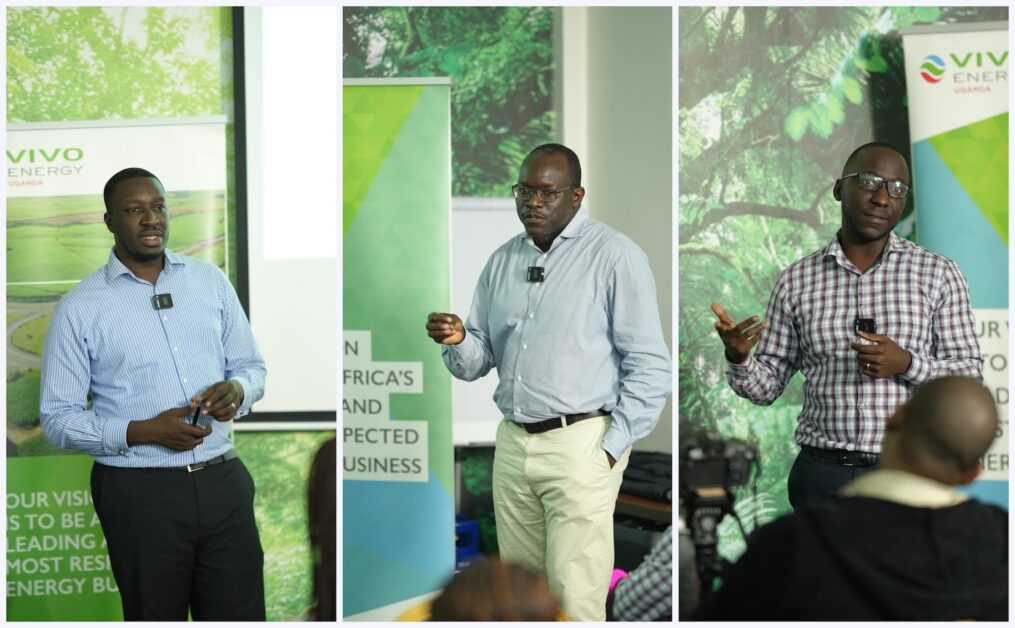
Later, the media team was taken on a tour of the company’s tank farm depot to gain a deeper understanding of the supply chain and fuel quality processes. The media also visited the Quality Fuels Laboratory where Dinah Nalubega and Lawrence Wavamunno, the experts manning the laboratory provided key insights into the various internationally certified quality assurance processes involved in receiving the products in the country the routine sample collections and quality tests at various stages of the supply chain- from the time the fuel enters the country to the pumps at the over 189 fuel stations in the country.
“The rigour with which we handle our products, they the level of dedication we go to ensure that you get the best quality products, but also the differentiation in terms of what’s the difference between the product we supply, visa vie what the market supplies, won’t change,” Elyanu reiterated.
On whether the changes in the supply chain will result in a significant change in final pump prices, Elyanu expressed optimism and positivity.
“Our expectation is that obviously, the Uganda government has our interests at heart- we as operators in the Ugandan market, but also as Ugandans. We hope that is what will happen, but let’s wait and see. The right person to tell us specifically, what the mechanics are, will be will be UNOC,” he said.
“Just like every Ugandan, we are looking forward to a good price of fuel (from UNOC) which we also commit, to make sure that our customers, experience, when it is finally availed to us,” he reiterated, adding: “We are supporting UNOC because we know where we’re coming from. We’re coming from a period where there was instability in supply, and we had hiccups and we are looking forward to UNOC fixing all of these things. Ugandans should not worry. I think we should support UNOC; we should support them in their effort to give independence to Uganda in supplying its own product”.
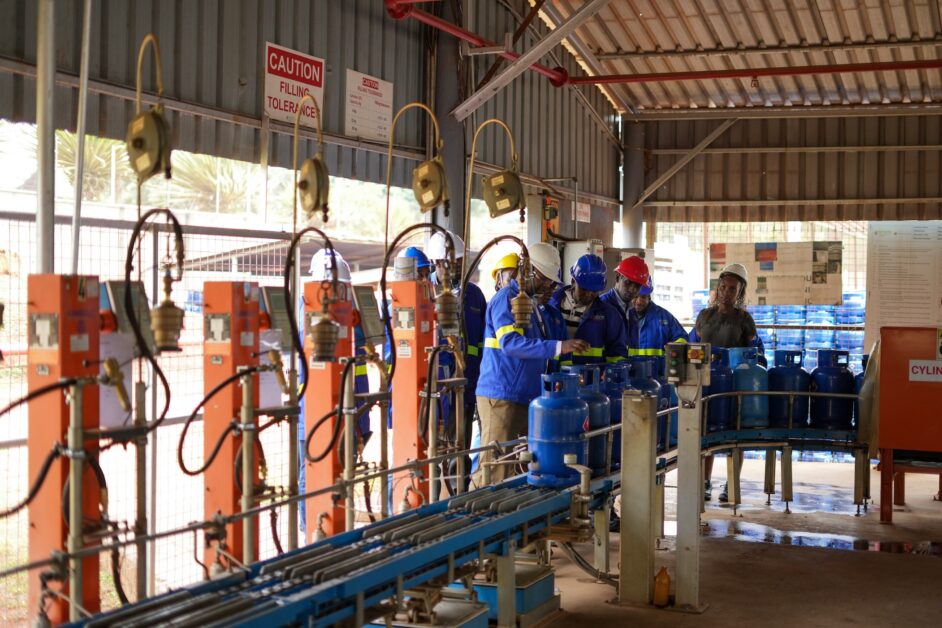
The media also toured the Shell Gas filling plant, where they were taken through the various quality and safety checks from the time the Shell Gas cylinders are received at the plant, filled and eventually sent to the market.
Joan Nabukalu, the Brand Manager for Convenience Retailing and LPG, emphasised the vital safety features that distinguish Shell Gas from other gas products on the market, such as the distinctive tamper-proof and QR-coded seals, which are essential for maintaining and tracking quality across the market.
Kennedy Ggwanga, the Health, Safety, Security, Environment and Quality (HSSEQ) Manager also emphasised the company’s “commitment to achieving and maintaining the highest international Health, Safety, Security and the Environment (HSSE) standards”.
“It is at the heart of our business and is a key differentiator for Vivo Energy in Africa. Being the best in HSSEQ is not an objective that sits apart from our overall ambitions; it is an integral and essential part of our business plan,” Mr Ggwanga said.

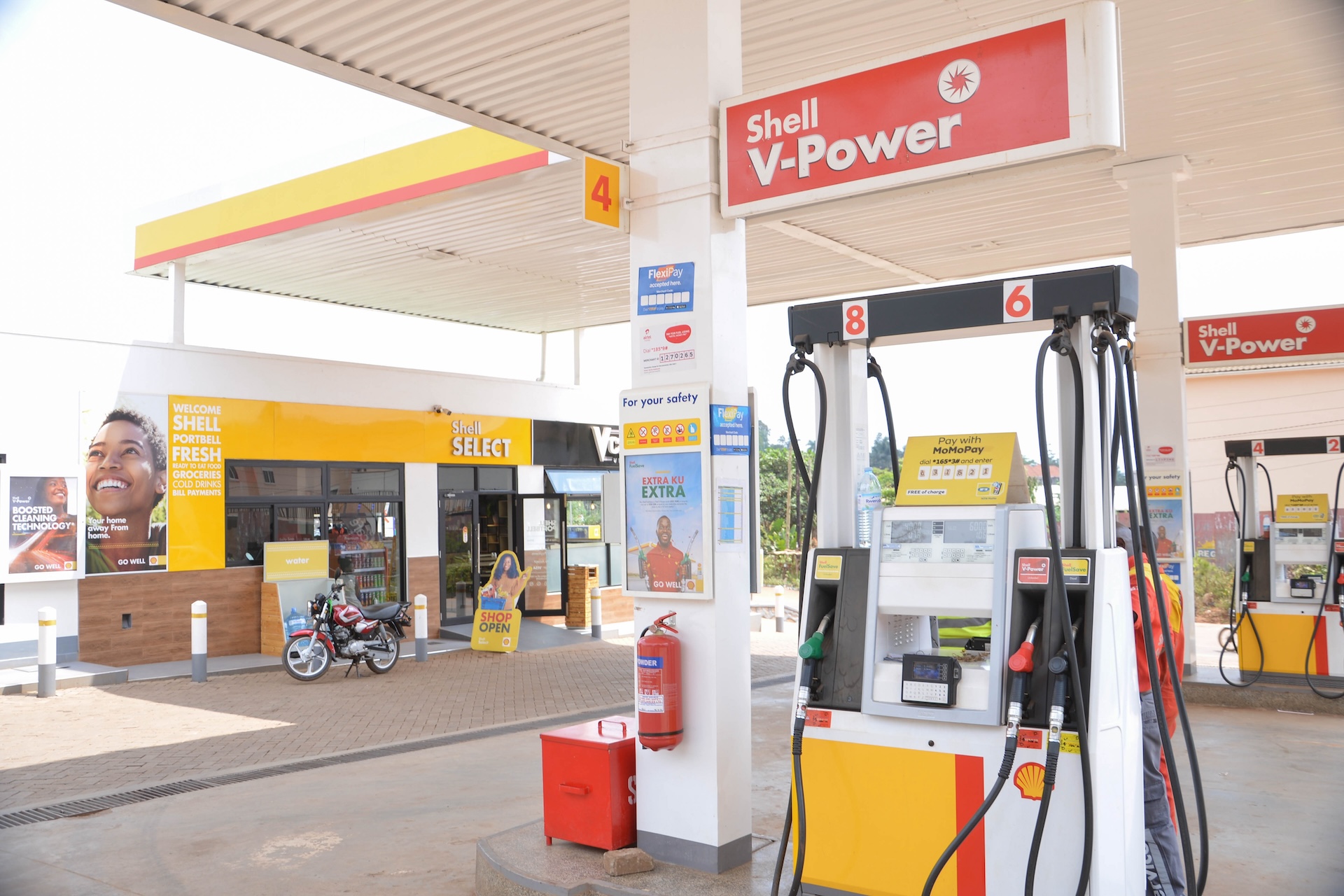
 Tight Rules, Big Money: Energy Ministry Restricts Gold Trade to Licensed Operators as Central Bank Enters a UGX 20 Trillion Market
Tight Rules, Big Money: Energy Ministry Restricts Gold Trade to Licensed Operators as Central Bank Enters a UGX 20 Trillion Market 